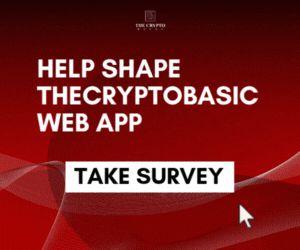Cryptocurrencies might have been going sideways for quite some time, but that hasn’t stopped the blockchain industry from continuing to innovate. One of the latest phenomenon’s to enter the spotlight is “social tokens” with focus on a particular person or community.
Social tokens are used to boost engagement among the followers of a person or a community, and while the idea itself is not entirely new, it is only with the emergence of blockchain technology that it’s finally beginning to take off.
What Is A Social Token?
For the uninitiated, social tokens are really just another kind of cryptocurrency, however they’re specific to a person, brand or community. They enable the entities they represent to monetize themselves outside of traditional revenue streams. In this way, a content creator or social media influencer can monetize their fan base by providing exclusive benefits to followers who own their social tokens.
It’s a compelling idea because creators have long been restricted in their ability to monetize their work, with traditional social media platforms like Instagram, YouTube, and TikTok taking a huge chunk of their earnings. At the same time, such platforms often place restrictions on the kind of content people can generate. With social tokens, influencers and creators can keep all of the revenue they generate and better reward their fans while retaining full artistic control over their content.
Two Kinds Of Social Tokens
Social tokens fit neatly into two categories. The first is personal social tokens, which are usually created by an individual in order to monetize their labor or fan experiences. For instance, a celebrity might create social tokens that can be redeemed for a one-on-one video chat or signed autograph. These kinds of tokens are already popular with some social media influencers, who hold monthly exclusive conversations with their fans.
Crypto entrepreneur Alex Masmej was one of the first personalities to capitalize on the idea with the creation of his ALEX token, in order to fund a move to Silicon Valley. Masmej wanted to move there in order to meet potential investors and co-founders for a new crypto startup. Holders of the ALEX token enjoyed some interesting privileges, being able to vote on Masmej’s lifestyle choices – such as where to get an apartment, what to eat, and so on. In addition, the token-entitled fans received a portion of the income he generated from his crypto venture. Those who hold a minimum of 5,000 ALEX tokens also get access to an exclusive newsletter and Telegram chat room where they can interact directly with him.
Besides personal tokens, we also have community social tokens, which are designed to incentivize participation within a large community. Community token holders are generally entitled to access exclusive content, entry to private chat groups and events, or limited edition merchandise. They may also give holders voting rights within a community’s decentralized autonomous organization.
One example of a community token is Whale Shark’s WHALE. Whale Shark is a community that collects non-fungible tokens, and WHALE holders gain fractional ownership of its entire collection. This brings a lot of benefits, as Whale Shark holds some of the rarest and most sought after NFTs in the crypto space.
Another kind of social community token is TAKI, the native cryptocurrency of the Taki social media platform. Taki bills itself as an “engage-to-earn” social media network, where users can earn TAKI simply by using the app on a daily basis. They can earn rewards for creating new posts and commenting on others. The TAKI coins they earn can then be used to tip other users with GOLD TAKI, or create “User Coins” that represent the value created by influencers on the platform.
Taki’s User Coins are actually a kind of personal social token. They represent a user’s presence on the Taki platform and perform a range of functions. For instance, they can be used to distribute GOLD TAKI rewards among the user’s community. So, a creator can sell their own personal tokens to generate income and then distribute whatever tips they receive as a reward for their fan’s backing. User Coins also function like regular cryptocurrency, and can be sold on a DEX, used as collateral for a loan, purchase NFTs, create a DAO, and more.
Differences With NFTs
Social tokens might sound similar to NFTs, and they certainly do share some characteristics as they’re both underpinned by blockchain technology and held in crypto wallets.
The biggest difference between social tokens and NFTs is fungibility. As the name suggests, NFTs are non-fungible, meaning they cannot be split in any way. You can’t buy half an NFT, for example, in the same way that it’s possible to buy 0.5 Bitcoin. Also, each NFT is unique and has its own value. An extremely rare Bored Ape Yacht Club NFT might sell for millions, whereas a run-of-the-mill RockerPunk NFT is worth only a few dollars.
On the other hand, social tokens are fungible and divisible. Each unit holds the same value, so the 0.2 TAKI held by one user is worth exactly the same as the 0.2 TAKI held by another user.
Another difference between social tokens and NFTs pertains to the underlying asset. Social tokens are designed to monetize creators, while NFTs are generally used to monetize virtual goods such as digital art or digital clothing in the metaverse.
A Driving Force For Web3?
Social tokens are likely to play an important role in the growth of Web3 platforms as they reinforce value distribution by matching a member’s contributions. With social tokens, users can create an incentivized business model that encourages stakeholder diversity while rewarding contributors and creators.
As we enter the new era of internet democratization, social tokens will become increasingly integrated with Web3 environments. In Web2, tech giants like Facebook and Google dominate legacy platforms and have full control of information dissemination. With social tokens, Web3 promises to devolve these systems with more freedom for creators and greater control around privacy.
Social tokens will play a key enabling role as they’ll be used to compensate creators. By eliminating the middleman, creators will be able to retain a much bigger portion of the revenue they generate, put more back into these platforms, maintain their creative independence, and reward their followers.
At present, social tokens are still largely an experiment and certainly not the norm. However, as the internet evolves from Web2 to Web3, that’s likely to change as more influencers and communities adopt them as a vehicle to increase engagement.
There are some risks with social tokens. Because they’re associated with a specific person or community, any problem or scandal (such as a hack) would reflect negatively on whatever it is they represent. But this risk is likely outweighed by the opportunity they present to reimagine content creation and community engagement and provide more value to everyone who plays a part.
DisClamier: This content is informational and should not be considered financial advice. The views expressed in this article may include the author's personal opinions and do not reflect The Crypto Basic opinion. Readers are encouraged to do thorough research before making any investment decisions. The Crypto Basic is not responsible for any financial losses.



